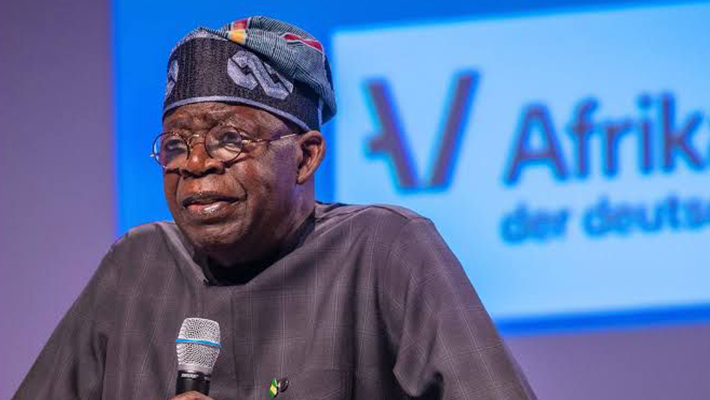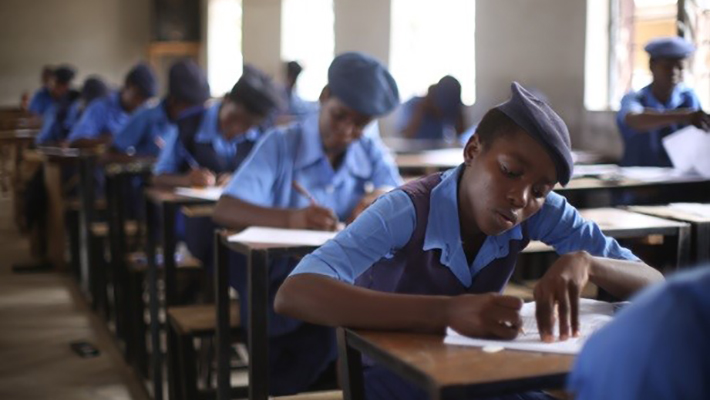Wole Olanipekun’s donation of Ekiti courthouse could harm Nigeria’s judicial system

“Nothing is to be done which creates even a suspicion that there has been an improper interference with the course of justice.” Lord Hewart, 9 Nov, 1923 in R v. Sussex Justices, [1924] 1 KB 256
Something extraordinary happened in Ikere-Ekiti in Ekiti State, southwest Nigeria, on January 19, 2023. On that day, the governor of the state, Abiodun Oyebanji, received and commissioned a new courthouse built by a senior lawyer, Chief Oluwole Oladapo Olanipekun. Luminaries from various walks such as politics, faith, business, and the professions graced the event. ThisDay newspaper led in describing the project as an act of “selfless philanthropy”. Governor Oyebanji himself invited the state’s “indigenes all over the world to emulate this act of generous giving back.”
Chief Olanipekun, who built the courthouse, is a proud son of Ikere, where the new courthouse is located. His credentials in the universe of Nigerian philanthropy are not in dispute. He is a benefactor of leading universities in the country, including the Universities of Ibadan and Lagos, as well as the Ajayi Crowther University. He gave generously to alleviate suffering during the worst months of the COVID-19 pandemic.
For decades, Chief Olanipekun has run a scholarship scheme to support the tuition and stipends of indigent students in various levels of education in Nigeria up to graduate studies as well as vocational studies in the Nigerian Law School. With some justification, philanthropy has been described as his way of life.
Chief Olanipekun is arguably the most successful Nigerian lawyer of his generation. He runs one of the biggest law firms in the country and is the lawyer of choice to presidents, politicians, and profitable companies. He became a Senior Advocate of Nigeria (SAN) in 1991 before being elected President of the Nigerian Bar Association (NBA), eleven years later. He has served as Pro-Chancellor and Chair of Governing Council of several universities around the country. He also now leads the Body of Benchers, the statutory body responsible for admitting new lawyers into the legal profession. He is himself a father of two SANs.
The construction of this courthouse was not done in secret. As Chief Olanipekun made plain at the commissioning ceremony, the project “was initiated with the consent and permission of the Honourable Chief Judge of Ekiti State, who also approved and modified the drawings appropriately.”
This is where the problems begin: what exactly was the Chief Judge thinking when he gave consent for a lawyer in active private practice to build and “donate” a courthouse to the judiciary? Despite everything that can be said in favour of well-appointed courthouses, the idea of any person building and “donating” one to the judiciary anywhere is so staggering in its implications that it must be rejected out of hand as a model for addressing the manifest challenges of Nigeria’s judicial system. Of the many reasons that can be adduced for this, five stand out.
Let us begin with the most basic. Courthouses go to the very essence of statehood. The state exists for the well-being of all who live within it. To protect them, it enjoys certain basic monopolies. One is a presumptive monopoly on the legitimate use of violence; the other is a monopoly of legitimate adjudication.
The latter monopoly in fact precedes the former. If the state dispenses justice credibly, it diminishes the likelihood that grievances can boil over into violence. This is why the monopoly over legitimate adjudication is not one to be trifled with.
Second, the credibility of the judicial function and public trust in its institutions is a high constitutional value dependent (in the words of Nigeria’s Constitution) on public perceptions of the “independence and impartiality” of the courts.
If one man builds a courthouse in a state from which he comes and in which he owns property or business, it is difficult to see how any decisions issued in that courthouse can be free from the whiff of partiality.
Even people who come from his village and whose cases have to be decided in that court will never be free of the perception that their cases may have been decided in a particular way because the courthouse was built by their famous son. Judges who sit in such courts could live under a perpetual cloud. No matter how hard they try to be fair, firm, and just, their decisions will never be impartial enough.
Third, a lawyer in active practice cannot be allowed to build or donate a courthouse for obvious reasons: such a project can never be free of perceptions of professional influence peddling.
This particular donation could soon prove to be more expensive than it is worth. In time, it will become grounds for appeal against decisions of judges who sit in it, exposing them to innuendoes and denuding them of the intangible assets of trust and confidence on which the judicial function is anchored.
Fourth, this idea of donation of courthouses invites the classic slippery slope. Let us begin from the premise that this donation is motivated by the purest of intentions. Not every person who may choose hereafter to invest in this model of “philanthropy” can be credited with the same purity of purpose.
If one man can build and donate a courthouse, then every big man who has stolen money will sooner or later adopt that same model as their own down payment on impunity. In no time, courthouses around the country could become annexed into private estates of questionable provenance and their preoccupation will not be justice administration but decision-making as to who gets shafted both in reality and in the public perception.
Above all, it is impossible for this kind of project to avoid a violation of the constitutional rules of fair hearing and the Judicial Code of Conduct. Rule 1(4) of the Code precludes every judge from “contacts that may lead people to speculate that there is a special relationship between him and someone whom the Judge may be tempted to favour in some way in the course of his judicial duties.” How does a judge who sits in a court built by one man avoid the impression that he or she has a special relationship with the “owner” of the court?
It is not in doubt that Nigeria’s judicial system has far-reaching problems of both capital and recurrent kinds. The state may well be unable to fully pay for all that the courts need. If private contributions are needed, one response could be to adopt the model of the security trust fund established by many states to address insecurity and policing. A parallel for the judiciary could take the form of an Administration of Justice Trust Fund under suitable statutory guarantees.
The only question that remains is what to do with this ‘donation’ already made in Ekiti State. It would be proper to extend appreciation to the donor for his high sense of public duty. However, the facility can be repurposed for other uses – such as a public library – which will not impinge on public perceptions of the administration of justice. The public interest in a justice system that works for everyone demands no less.
It should be clear that this is not something that any state should have entertained or allowed. This kind of project guarantees an impression of improper interference in the administration of justice.
This deserves the attention of the NBA, the Chief Justice of Nigeria, and the National Judicial Council to ensure that this first will also be the last and the only instance of this kind of “donation” anywhere in Nigeria.
Odinkalu teaches at the Fletcher School of Law and Diplomacy
We have recently deactivated our website's comment provider in favour of other channels of distribution and commentary. We encourage you to join the conversation on our stories via our Facebook, Twitter and other social media pages.
More from Peoples Gazette

Politics
Katsina youths pledge to deliver over 2 million votes to Atiku
“Katsina State is Atiku’s political base because it is his second home.”

Economy
International investor hails Nigeria’s mining sector reforms
Glencore, a Swiss multinational commodity trading and mining company, has lauded the federal government over its reforms in the mining sector.

Education
Tinubu’s Student Loan: NELFUND warns students against fake websites
NELFUND has urged students to exercise caution and verify the legitimacy of any Website or service claiming to represent the organisation.

NationWide
Tinubu govt urged to end drug, human trafficking
AKH-TRACADA made the call in a statement on Friday.

Abuja
APBPI begins campaign to shape Abuja students’ behaviours
APBPI organised the campaign in collaboration with the FCT Secondary Education Board.

Faith
Kalu, NUJ mourn Senator Ayogu Eze’s death
The Enugu council of the Nigeria Union of Journalists (NUJ) has expressed shock over the death of Ayogu Eze.

Anti-Corruption
Nigeria’s aviation regulators corrupt, falsify airlines’ safety reports, approve shaky aircraft to fly: Keyamo
“Most of them don’t fly those airlines…they will tell their relatives ‘don’t fly that airline’ because they know the health status of those airlines,” Mr Keyamo








